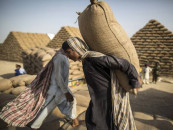Rethinking policies to curb illicit trade
Policy steps remain confined to bridging revenue gaps by raising taxes while neglecting market distortions

Illicit trade has emerged as a significant threat to economic stability. Despite an annual tax revenue loss of more than Rs750 billion — and an estimated total tax revenue loss of Rs3.4 trillion considering that one-third of the economy operates informally — the policy response has remained confined to bridging revenue gaps by raising taxes while completely neglecting market distortions. The significant tax burden placed on citizens is a driving factor behind the stronghold of illicit trade in Pakistan.
When we talk about illicit trade, a common perception is that this is an enforcement issue. However, in reality, the root cause of this problem is the faulty economic policy. Economic agents develop business practices based on the incentives or dis-incentives created by policies. The ineffective enforcement only complements the problem. This is also corroborated by the Illicit Trade Index 2025 of the Transnational Alliance to Combat Illicit Trade (TRACIT).
Illicit trade has gradually become a significant threat to the economy. It not only undermines formal businesses, but also erodes competition and innovation in the market, drains government revenues and exposes consumers to unsafe, counterfeit products.
The unconducive business environment created by short-term economic policies creates incentives for malpractices. By economic policies, I am referring to taxes and tariff or non-tariff barriers, both aimed at generating revenues and restricting imports into Pakistan.
At high tax rates, profit margins for sellers decrease, leaving them with options to pass on the burden to consumers, compromise on the quality of products, evade taxes or find cheaper illicit goods.
For instance, the increase in federal excise duty (FED) on tobacco products in 2023 has created a large and flourishing market for smuggled brands. Aimed to generate revenues, the high taxes shifted demand towards illicit products, depriving the government of Rs300 billion in tax revenues. Now, the market share of illicit cigarettes is 56%.
With high tariff or non-tariff barriers, intended to protect local manufacturers or restrict imports, the consequence is not only an increase in prices of imported goods but also lower competition and no incentive to innovate.
Moreover, cumbersome regulations and bureaucratic hurdles at ports and borders have added to the costs of legitimate trade without effectively deterring illegal activity. Complex procedures often delay legal imports, while organised smuggling networks exploit gaps in monitoring and control. In many cases, the outdated customs practices and the lack of modern scanning equipment allow illicit goods to move with relative ease.
Legitimate businesses suffer as they are forced to compete with cheaper, untaxed products. Investment slows down as investors shy away from markets where the rule of law is weak and unfair competition is rampant.
Consumers, on the other hand, experience lower purchasing power and affordability constraints, especially in the last couple of years when inflation remained much higher and real incomes declined. The options available to consumers are low quality but expensive local goods or cheaper but illicit goods. The viable option in most cases appears to be the illicit goods.
Enforcement shortcomings further compound the problem. Pakistan's enforcement agencies remain under-resourced and sometimes poorly coordinated. The number of customs and anti-smuggling personnel is insufficient compared to the scale of the problem.
Sporadic crackdowns and intelligence-driven efforts have failed to restrict smuggling. In addition, the lack of reliable data and weak inter-agency cooperation hamper efforts to track and control illicit flows effectively.
Addressing illicit trade requires a comprehensive and coordinated approach. To begin with, tax and trade policies should be rationalised to ensure that taxes and duties are set at levels where compliance becomes economically viable rather than burdensome.
Pakistan must strengthen enforcement by significantly increasing resources and personnel, particularly at the retail level where illicit goods reach consumers. At the same time, technology must be upgraded by strengthening systems like Track and Trace and equipping law enforcement agencies with modern tools to authenticate tax stamps and verify the legitimacy of goods.
Finally, inter-agency coordination must be enhanced to ensure that the Pakistan Customs, Federal Board of Revenue (FBR), provincial excise departments and security agencies work together strategically, sharing information and resources to dismantle illicit networks more effectively.
Combating illicit trade is not simply about policing; it is about restoring the economic foundations that drive business behaviour. Rationalising tax and trade policies, strengthening enforcement, modernising technology and fostering better coordination across agencies are crucial to address this issue.
Pakistan must recognise that illicit trade is not just a fiscal loss but a deeper economic distortion that weakens businesses, undermines consumer welfare and erodes public trust. Without decisive action, the parallel economy will continue to expand, dragging formal growth and prosperity down with it.
The writer is a Research Economist at the Policy Research Institute of Market Economy (PRIME), an independent economic policy think tank





















COMMENTS (1)
Comments are moderated and generally will be posted if they are on-topic and not abusive.
For more information, please see our Comments FAQ